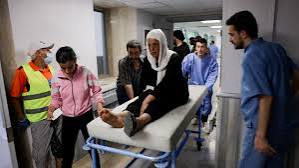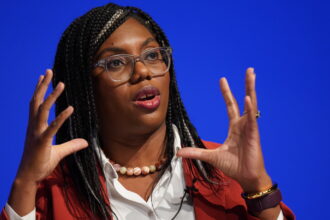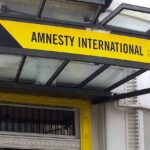
The World Health Organisation (WHO) says main hospital in the southern Syrian city of Sweida had been overwhelmed with trauma patients and working without adequate power or water.
WHO’s Christina Bethke told reporters in Geneva via video link from Damascus, that the situation became worse after the local Druze minority clashed almost two weeks ago with Bedouin and government forces.
“Inside of Sweida, it’s a grim picture, with the health facilities under immense strain.
“Electricity and water are cut off, and essential medicine supplies are running out.’’
Many medical staff cannot reach their workplace safely, and the main hospital’s morgue was full at one point this week as it dealt with a surge of trauma cases.
According to the Syrian Network for Human Rights, at least 903 people were killed in the sectarian bloodshed after clashes between Druze militias and Bedouin tribes spilled into ferocious fighting between the Druze and government forces sent to quell the unrest.
The Network’s head, Fadel Abdulghany, has said the toll is not final, and that his group documented field executions by Syrian troops, Bedouin tribal fighters and Druze factions.
Though the WHO has managed to deliver two convoys of aid, access remains difficult because tensions remain between the groups controlling various parts of Sweida governorate, it said.
More than 145,000 people have been displaced by the recent fighting, the WHO said, with many sheltering in makeshift reception centres in Daraa and Damascus.


![JUST IN: New APC National Chairman visits former Zamfara Governor Yari [PHOTOS]](https://keeploss.com/wp-content/uploads/2025/07/just-in-new-apc-national-chairman-visits-former-zamfara-governor-yari-photos-150x150.jpg)











